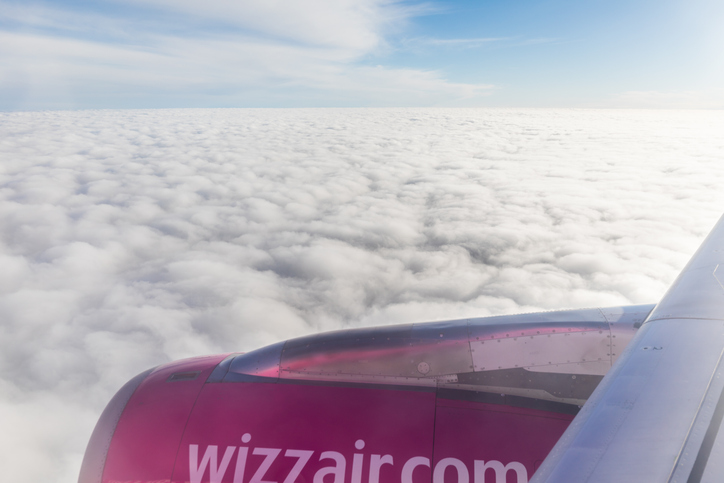ii view: Wizz Air warns of another annual loss
Shares of this budget airline are up over 115% since pandemic lows. We assess prospects.
4th June 2021 11:35
by Keith Bowman from interactive investor
Shares of this budget airline are up over 115% since pandemic lows. We assess prospects.

Full-year results to 31 March
- Revenue down 73% to €739 million
- Loss for the year of €576 million, down from a profit of €281 million
- Cash held up 8% year-over-year to €1.6 billion
- Net debt up 131% to €1.69 billion
Guidance:
- Expects to report a net loss for the current year to March 2022
ii round-up:
Wizz Air (LSE:WIZZ) is a low-cost European airline. It operates a fleet of 140 Airbus A320 and A321 aircraft.
Its first flight took off in May 2004 from Katowice to London Luton. Today it flies to over 150 airports across more than 40 countries.
For a round-up of these latest results, please click here.
ii view:
The travel industry is a volatile sector to invest in at the best of times. Factors outside of management’s control, such as fuel costs, the weather and strike action can impact on both operations and financial performance. Now the Covid-19 pandemic has given the airline industry its biggest ever crisis.
For Wizz Air and rivals such as Ryanair (LSE:RYA) and easyJet (LSE:EZJ), conserving cash at a time when flights and revenues have been severely reduced has become a top priority. Wizz Air’s operating costs for this latest pandemic hit year were cut by 50% to €1.17 billion. Staff costs were reduced by 43%. Cash held on the other hand rose by 8% year-over-year to €1.6 billion. Cash burn in the final fourth quarter was €87 million, with a monthly average over the year of €61 million. Group net debt rose to €1.69 billion from €729 million at the end of the previous financial year.
For investors, recent travel announcements from the UK government and a highly uncertain outlook offer firm reason for caution. National vaccination programmes are running at different speeds and now political tensions following the recent grounding of a flight over Belarus are added to the mix. That said, cash held and cash burn give ongoing operational ability and Wizz retains an investment grade credit rating. Management is confident that it now has an even higher cost advantage versus peers, while the young age and fuel efficiency of its aircraft fleet provides high environmental credentials.
In all, its low-cost business model leaves it better positioned than many rivals, although the degree of outlook uncertainty arguably favours a ‘wait and see’ approach for now.
Positives:
- Cash balance of €1.6 billion at the end of June
- A focus on reducing CO2 emissions
Negatives:
- Highly uncertain outlook due to Covid-19
- Increased net debt
The average rating of stock market analysts:
Strong hold
These articles are provided for information purposes only. Occasionally, an opinion about whether to buy or sell a specific investment may be provided by third parties. The content is not intended to be a personal recommendation to buy or sell any financial instrument or product, or to adopt any investment strategy as it is not provided based on an assessment of your investing knowledge and experience, your financial situation or your investment objectives. The value of your investments, and the income derived from them, may go down as well as up. You may not get back all the money that you invest. The investments referred to in this article may not be suitable for all investors, and if in doubt, an investor should seek advice from a qualified investment adviser.
Full performance can be found on the company or index summary page on the interactive investor website. Simply click on the company's or index name highlighted in the article.